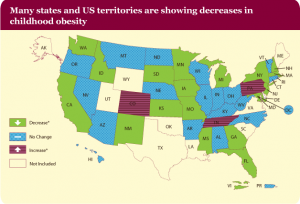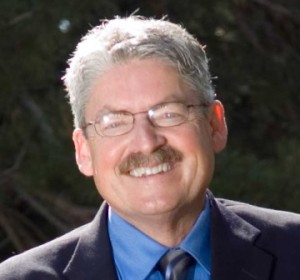By Diane Carman
While some researchers are celebrating what they see as a new, positive trend toward declining obesity rates among low-income preschool children in a report released this week, James O. Hill is skeptical.
Too many toddlers are obese, said Hill, executive director of the Anschutz Health and Wellness Center. Thats the bottom line.
These are very tiny numbers that are bouncing around, he said. I struggle to say there are any real trends here.
The report, Vital signs: Obesity Among Low-Income, Preschool-Age Children United States, 2008-2011, by the Centers for Disease Control and Prevention found that small but significant declines in obesity among low-income preschoolers were observed in 19 of 43 states/territories examined.
The numbers were flat in 20 states and Puerto Rico, and three states reported increases in child obesity: Pennsylvania, Tennessee and Colorado.
Hill said that the fluctuations found in the report, which studied approximately 11.6 million children between 2 and 4 years of age who are enrolled in federal nutrition programs for low-income families, were around 1 percent in most cases.
If you look at Colorado over the study period, these were tiny, tiny changes in the numbers, he said.

Colorado is one of three states where obesity rates increased among low-income preschoolers between 2008 and 2011.
In 2008, the percentage of obese children in the study group was 9.4 percent; 9.0 percent in 2009; 9.1 percent in 2010; and 10 percent in 2011. The numbers of children involved in the study fluctuated dramatically, too, ranging from a high of 52,292 Colorado children in 2010 to 27,467 in 2011.
Hill said state officials have said that the 2012 numbers, which were not included in the CDC report, showed a decline in the obesity rate for toddlers in the study group in Colorado. But Im taking this with a grain of salt.
Never mind the tiny changes in percentages from year to year, Hill said the real issue is that 9 percent of these children are obese. Weve got a problem here and we need to very seriously think about what were going to do to address the needs of these kids. This should be a wake-up call for the state.
Obesity in preschoolers is a harbinger of things to come, he said. If weve got preschool kids with a significant problem with obesity, it isnt going to get better over time. Its going to get worse.
Adults are entirely responsible for obesity in toddlers. They are in complete control of what toddlers eat, and a normal toddler will self-regulate and not overeat.
Adults disrupt that by telling children to clean their plate or to eat more of this or that, Hill said. If were going to focus on turning this around in kids, weve got to reach the parents and the caretakers.
They have to learn to give children healthy foods, restrict unhealthy foods and not pressure them to overeat.
The authors of the CDC report attributed some of the decline in obesity to increases in breastfeeding in this population and changes in federal policy for the Special Supplemental Nutrition Program for Women, Infants and Children.
Both of these strategies are good ones, Hill said, but they dont go far enough.
We have focused a lot of attention on what is served at the table and what is bought at the grocery store, when in fact we need to go way upstream and look at things like subsidies for corn and food stamp programs, he said. Thats where we could have real impact.
The high rate of obesity among toddlers is a real concern in Colorado, Hill said, because the state has had a rapidly increasing childhood obesity rate for the past decade. Between 2003 and 2007, childhood obesity in Colorado increased by 23 percent, which was the second-fastest rate in the country.
Right now we have the high ground with the reputation as the leanest state, Hill said, but with whats going on in terms of trends, were very much in danger of losing that.
Being the leanest state is huge for Colorado. You lose a lot if you lose that. Its a great asset.
Hill said the Health and Wellness Center has made progress in the quest to prevent and treat obesity.
We know a lot about what to do. One of the things that we see as still a really big challenge is the why.
Hill said motivating people to change their habits is the tough part.
We see people who are obese and theyre not out there complaining about their foods. Theyre pretty happy.
We need to give people a reason to want to eat healthy and be more physically active, he said. We have programs, and when people do them, they work. The question is how to get people to do them.
One strategy may be to get parents to focus on healthy eating and physical activity for their children.
It may be one reason to get people to change. Parents may want to do it for their kids.
Hill said the CDC study provides no clear indication that were going strongly in the right direction in confronting childhood obesity in the U.S.
This is not huge big news, he said. With double-digit obesity rates in most of the country, weve got a problem.

